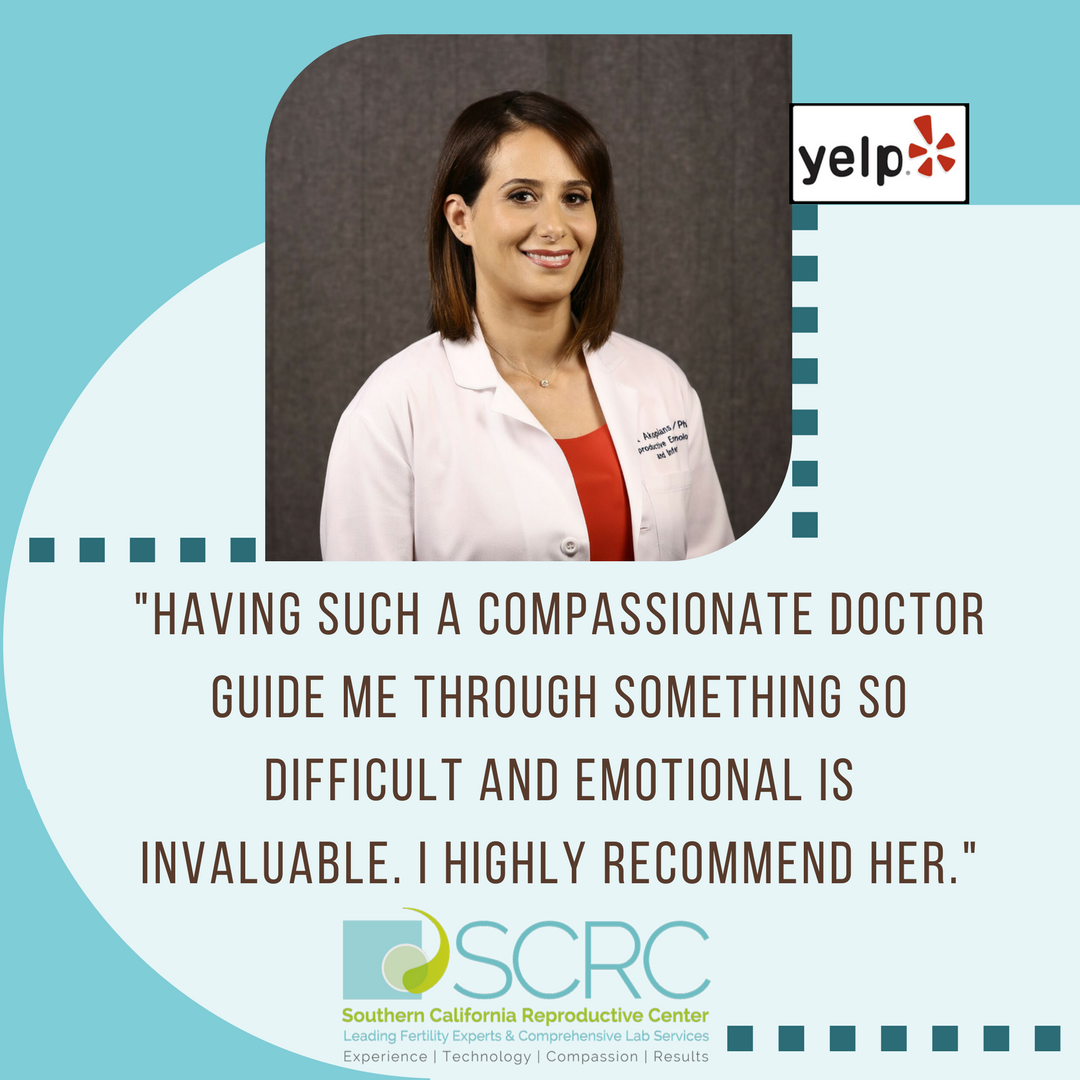PCOS stands for Polycystic Ovarian Syndrome, a condition which affects more than ten million women around the world. PCOS causes a wide range of symptoms which can be very disruptive to a woman’s life, and which can interfere with her fertility. There is no cure for PCOS, but there are many treatments available which can be very effective: thanks to advances in fertility medicine and technology, most patients with PCOS who want to get pregnant eventually do.
SCRC Contributor
Recent Posts
Doctor Spotlight on Dr. Alexander
Today we have another entry in our ongoing Doctor Spotlight series. September is Polycystic Ovarian Syndrome (PCOS) Awareness Month, which makes this a perfect time to introduce Dr. Carolyn Alexander. Dr. Alexander is known affectionately in the fertility community as the “PCOS Queen” for her unparalleled expertise and knowledge of this subject.
Can I Get Pregnant with Endometriosis?
Endometriosis is one of the most common causes of female infertility, and it affects up to 10% of women of childbearing age, according to the National Institute of Health. As if the extreme chronic pain and heavy bleeding that endometriosis can cause were not enough, it can also seriously derail your plans to get pregnant. Of the more than 5 million American women coping with endometriosis, at least a third must also deal with its impact on their fertility.
Reasons You Might Need a Surrogate
It is time to end the stigma around fertility treatment. At SCRC, we consider this a vital part of our mission. While we’ve made huge strides towards acceptance in the past few years, there are some areas of reproductive medicine which still retain a hint of taboo in public opinion. Pretty much everyone knows someone who has used IVF to build their family, and it has become a mainstream topic in the media. When the conversation turns to surrogacy, however, the mood often changes. There are still plenty of myths and misunderstandings about how surrogacy works, most of all around why someone might need to use a surrogate. Gestational surrogacy is a beautiful, life-changing, life-affirming option which deserves to be better understood. Today we’re going to take another step towards demystifying it.
Doctor Spotlight on Dr. Akopians
Choosing a fertility doctor to help you on your path to parenthood isn’t easy. It’s one of the most important decisions you can make. You want someone who is practicing at the top of their field so that you may have access to all the latest research and techniques, but there is more to the doctor/patient relationship than that. You need a doctor who will treat you as a valued part of the team, help you choose the right treatment plan, hear your concerns and offer expert, compassionate care at every stage.
SCRC Offers Access to Bright Expectations: An Egg Donor Agency and Expert Matching Service
The decision to pursue IVF with donor eggs is a big moment in any family’s life. For us as fertility specialists, egg donation is one of the most exciting options out there. While we’ve had to overcome some stigma over the past few years, we know that using donor eggs and IVF is an incredibly effective treatment for some of the most common causes of female-factor infertility. For many patients, donated eggs can finally make their dreams of getting pregnant come true, often after years of disappointment and heartbreak. For single men and gay couples who want to have a baby, egg donation and gestational surrogacy can provide a path to parenthood that would never have been possible just a generation ago.
Travel, Zika, and Trying to Conceive
With summer in full swing, you might be giving a lot of thought to your next vacation. There is something about this time of year that gets us thinking about palm trees, warm sand, and long hours spent relaxing by the water, doing absolutely nothing. If you are hoping to get pregnant, you need to be aware of any potential risk factors at your destination. The Zika virus is a serious concern for anyone who is planning a pregnancy, and many of the affected areas, such as Mexico, many parts of the Caribbean, Central and South America and many Asian and African countries are all popular tourist spots. Here’s what you need to know before you go.
Questions to Ask About Infertility Insurance Coverage
The financial side of fertility treatment is fraught for many patients, and figuring out how to fund your care is challenging. Often, the last thing you want to think about are the intricacies and bureaucracies of insurance, but understanding your rights and your options can make a huge difference as you move forward. To help you get a clear picture of what you need and can expect from your insurance provider, we have put together this clear guide. Asking the right questions is the first step towards getting the right answers.
SCRC Celebrates Pride Month
June is Pride Month, and as the celebrations kick off around the country, we’re shining a light on the fertility treatment options available to LGBT+ couples, families, and individuals. We know that the path to parenthood isn’t always simple, and that members of the LGBT+ community often face many issues and challenges along the way. All of us at SCRC are committed to equality in reproductive choices and treatment for LGBT families.
Most Frequently Asked Questions to Our Fertility Doctors
All of us at SCRC are committed to education. Providing access to cutting edge research, dispelling common myths about fertility, and helping people understand how fertility treatment might be able to help them: it’s all part of our mission, and it’s important work. There’s a lot of information out there about fertility. Some of it’s great, some of it’s incomplete or outdated, and some of it is actually full of inaccuracies and misunderstandings. Sorting through it all to find out what you need to know can be a real challenge.
In our many years of speaking with and treating patients, there are some questions that our fertility doctors hear time and time again. Today, we’ll take a look at some of these queries and offer some straightforward answers.














